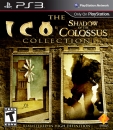| Joelcool7 said: Sorry not going to read the entire thread. Just post my response to the OP. Being predictable does not mean the person did not have free will. I can understand someone ideology their specific type of person they like to victimized and every thing about them. Yet I can never be certain that they will act as predicted. I have heard so many arguments that your childhood and the events in your life dictate your actions and that biologically you do not have a choice. Well honestly I am living proof that is false, a child of divorce who spent years in respite before his mom remarried moving away at which point he entered foster care. Bullied his entire life to the point of attempting suicide, turning violent in Middle School sending people to hospital in vicious defensive strikes against bullies. Watching my foster brother slowly spiral downwards till he OD'd. I have been a victim of sexual crime, child abuse a child who spent years upon years in a living hell. One with Aspergers Syndrome and Terrets, OCD. I went through the ringer. But today while my other foster brothers are dealing. Some girls turned to the streets. Of the foster children I was with I am the only one to have completely thrived. Today I have gone on mission trips I volunteer with different organizations I teach Sunday school. So my up bringing my childhood even up to my teen years did not dictate my choices. Today I still make my own choices and no its not some chemical in my brain outside of my control. My impairments may hurt my ability to thrive socially but nothing has taken my freedom of choice away! I have a friend headed to the RCMP who talked with me a while about psychological profiles. He was blunt I thought they were way better then they are. He said roughly 70% probably a little under of cases the profiles actually get right. No matter how well they are trained no matter how predictable a person is, they can always surprise you and change at the drop of a hat. Qaddafi thought billions in brain washing all the best techniques the psychologists the smartest manipulators in the world would guarantee him power. Yet he lost it, he played with fire and he thought he had control of his people to the very end was in denial that he had lost. That is not to say you cannot manipulate peoples actions if you understand their ideologies of course that is highly unethical. But also you can never be certain that the individual will react the way you think they will. So yes Free Will exists! |
I will respond to you with this: Everything happens for a reason.















































)












